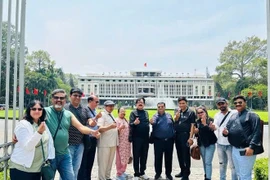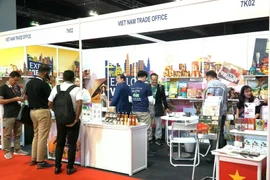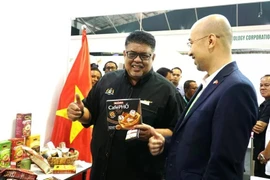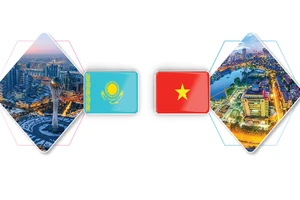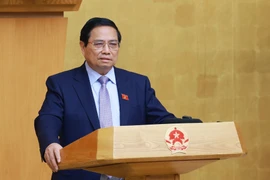Hanoi (VNA) – With the US imposing reciprocal tariffs on exports, many Vietnamese firms are pivoting to the burgeoning global Halal market to diversify their revenue streams and boost export growth.
Trade experts highlighted the Halal economy’s massive potential, fuelled by a large consumer base, rising spending, and economic diversity, with forecasts pegging its worth at 10 trillion USD by 2028.
The 2024 Global Halal Food Market Report by Cognitive Market Research valued the Halal food sector at over 2.548 trillion USD in 2024, set to nearly double to 4.934 trillion USD by 2031, with a 9.9% annual growth rate. Demand for Halal-certified products is surging, not only in Muslim-majority countries but also in markets like China, home to an estimated 21–23 million Muslims, potentially rising to 30 million by 2030.
As an agricultural powerhouse, Vietnam is primed to dive deeper into the Halal food supply chain. Right now, its Halal exports lean on farm produce and raw materials, but more companies are securing Halal certification to access markets within the Organisation of Islamic Cooperation (OIC). With its ranking among the top 20 global food exporters and top 15 agricultural exporters, bolstered by 17 free trade agreements (FTAs), Vietnam is a strong contender in the global Halal supply chain.
However, challenges remain. Vietnamese firms must meet stringent Halal certification standards and improve competitiveness. The absence of a complete Halal ecosystem poses a hurdle while rivals like Brazil, Singapore, and Indonesia have already held considerable market shares and had rich experience.
The Vietnamese Government has been issuing strong directions to diversify export markets and reduce reliance on big trade partners. The Ministry of Industry and Trade (MoIT) is also spearheading efforts through trade promotion campaigns targeting Muslim-heavy markets like the Middle East, Africa, South America, and Eastern Europe.
Vu Ba Phu, Director of the Vietnam Trade Promotion Agency (Vietrade) under the MoIT, said to gain a sustainable foothold in Halal markets, a comprehensive strategy is required, covering institutional support, certification, enterprise training, logistics systems, communications, and market access.
Phung Van Thanh, Commercial Counsellor at the Vietnam Trade Office in the Philippines, said his office is pushing Halal opportunities hard, with trade promotion events, market surveys, and business exchanges. It is touting the Halal Expo Philippines 2025, slated for November 13–15 in Manila, as a chance to network globally.
Deputy Minister of Industry and Trade Nguyen Sinh Nhat Tan said to help businesses boost exports to Halal markets, the MoIT will step up trade promotion and provide detailed guidance on Halal standards, regulations, and market conditions, particularly in Muslim-majority countries like Indonesia, Malaysia, and those in the Middle East, Asia, and Africa. It will also work closely with business associations to help Vietnamese firms seek potential partners in those markets.
The MoIT also promised support for businesses to improve product quality up to Halal standards – the decisive factor to expand Vietnamese presence and increase export value in international markets./.
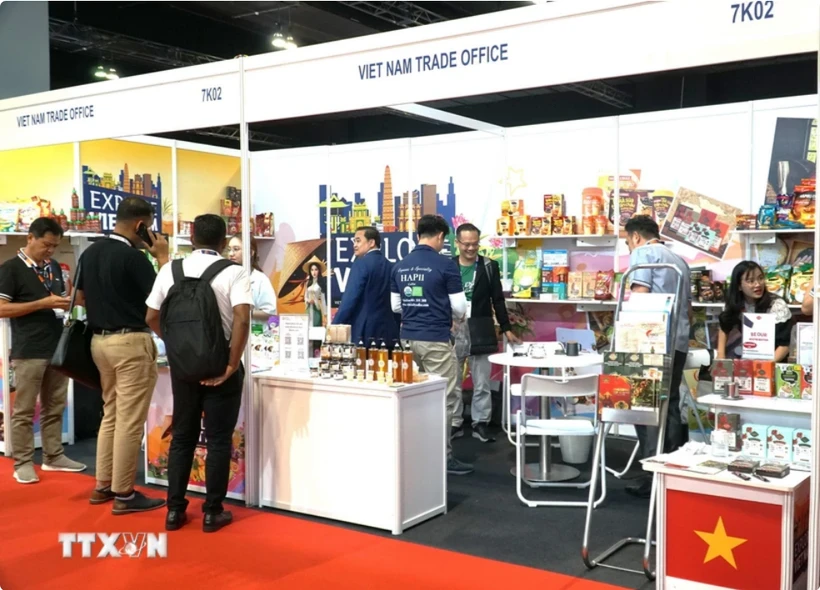
See more
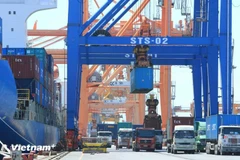
Vietnam posts trade surplus of 3.79 billion USD in four months
Vietnam's total import-export turnover reached 267.89 billion USD in the first four months of 2025, marking an increase of 15.7% year-on-year.
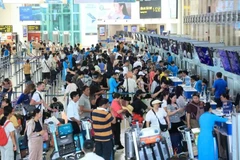
Vietnam Airlines to offer nearly 9 million seats for summer peak season
During the April 30 – May 1 holiday, Vietnam Airlines operated over 3,100 flights, serving 500,000 passengers, up 27% year-on-year after adding 350 extra flights on high-demand routes.
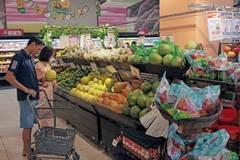
Vietnam's CPI inches up 0.07% in April
In April, prices rose in eight out of 11 groups of main consumer goods and services, two groups saw price declines, and one remained unchanged.
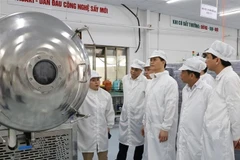
Bac Ninh reserves industrial land for private tech firms
Bac Ninh is working to support domestic private sci-tech enterprises in accordance with the Party Central Committee's policy, with the goal of making the province a role model in promoting and assisting the private sector.
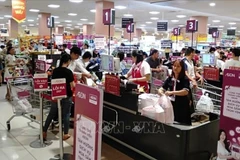
Japanese retailers step up business activities in Vietnam
Aeon – Japan's largest retail group – plans to increase the number of hypermarkets, also known as "Super Supermarket (SSM)" and general merchandise stores (GMS) in Vietnam from 12 as of February 2025 to about 100 stores by 2030. Another large Japanese group, Sumitomo, also aims o open supermarkets in Vietnam, with about 10 stores per year.
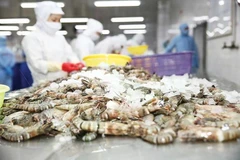
Vietnam, Cuba expand high-tech shrimp farming cooperation
With continued support from Vietnamese experts, the “shrimp farming for hunger elimination” model is gradually taking shape in Cuba, creating jobs for thousands of local workers.
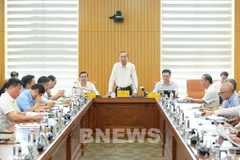
Agriculture, environment ministry sets forth key tasks for sci-tech, innovation promotion
The first task is to raise awareness, renew thinking, and have strong political determination throughout the agricultural and environmental sectors on science – technology development, innovation, and digital transformation.
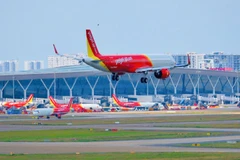
Vietjet sees 24% profit increase amid bold int’l growth in Q1
Vietjet's consolidated revenue totaled 17.952 trillion VND (690 million USD) while pre-tax profit was 836 billion USD (32.1 million USD), up 24% YoY.
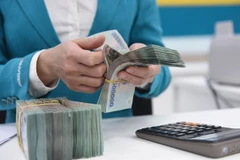
Reference exchange rate down 6 VND on May 6
The State Bank of Vietnam set the daily reference exchange rate for the US dollar at 24,938 VND/USD on May 6, down 6 VND from the previous day.
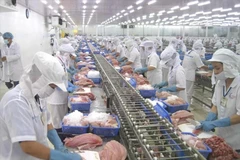
Agro-forestry-fishery trade surplus approximates 5.2 billion USD in four months
Six commodities recorded more than 1 billion USD in value, led by wood and wood products at 5.2 billion USD (up 5.8%), coffee at 3.78 billion USD (up 51.1%), and shrimp at 1.24 billion USD (up 28.4%).
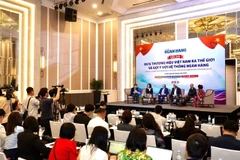
Vietnamese banks promote development of global strong brands
Vietnamese banks have also proactively improved their image and position in the international arena. According to Brand Finance's 2025 rankings, 13 Vietnamese banks are now listed in the Top 500 banks with the highest brand value globally.
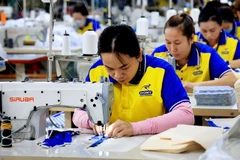
Vietnam’s textile and garment industry accelerates exports
As of April 15, Vietnam’s total textile and garment export turnover reached 1.8 billion USD, representing an 8.7% increase compared to the same period in 2024.
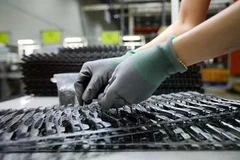
FDI inflows into Hanoi soar over 30% in four months
Total FDI poured into Hanoi during the first four months hit 1.48 billion USD, up 31% year-on-year, according to local authorities.
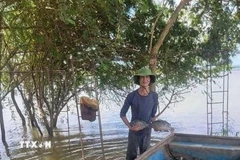
Brazil lifts suspension on Vietnamese tilapia fish imports
The Brazilian government said that allowing tilapia fish imports from Vietnam is an irreversible decision and is part of its negotiations in late March to open the beef market in Vietnam.
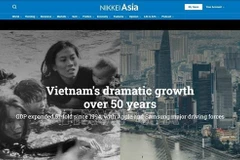
Vietnam records dramatic growth after 50 years of reunification: Nikkei Asia
Vietnam's GDP per capita was 4,535 USD in 2024. The Government aims to achieve over 7,500 USD in GDP per capita by 2030 and become a high-income country by 2045.
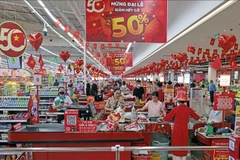
Hanoi’s CPI up 2.89% in four months
In response to these trends, economic experts have recommended Hanoi to implement a range of measures to manage inflation in the coming months. They emphasised the need to strengthen price monitoring of essential goods, particularly food, fuel, pharmaceuticals, and healthcare services.
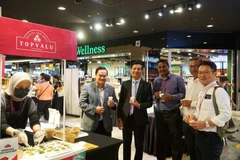
Vietnamese specialties introduced to Malaysian consumers
A highlight of the Vietnam Goods Week in Malaysia is the introduction of Vietnamese culinary booths featuring iconic dishes like Vietnamese banh mi (baguette), pho (rice noodle), and coffee by the "Saigon Station" restaurant.
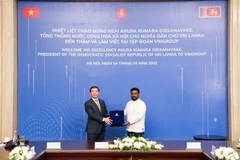
Sri Lankan President praises Vingroup’s investment potential
The Sri Lankan President emphasised investment opportunities for Vingroup in the sectors it is strong at such as tourism, finance, and real estate, especially in Colombo – Sri Lanka’s largest city.
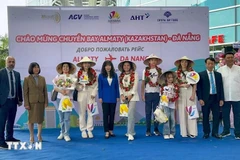
Vietnam, Kazakhstan eye deeper economic ties to expand cooperation
As bilateral trade flourishes, an upcoming state visit to Kazakhstan by Vietnamese Party General Secretary To Lam promises to inject new energy into economic ties.
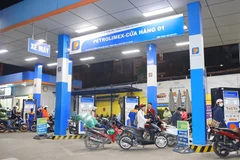
Petrol prices fall in latest adjustment
The Ministry of Industry and Trade have announced reductions in retail fuel prices, effective from 3:00 pm on May 5.
